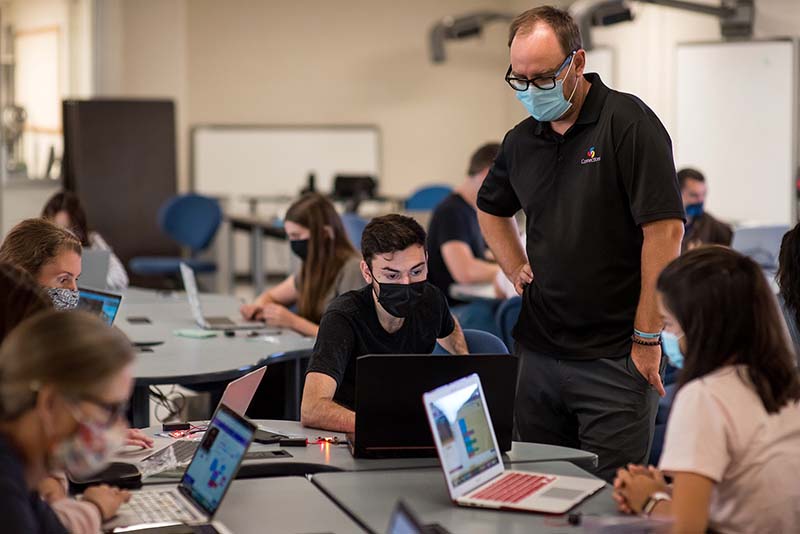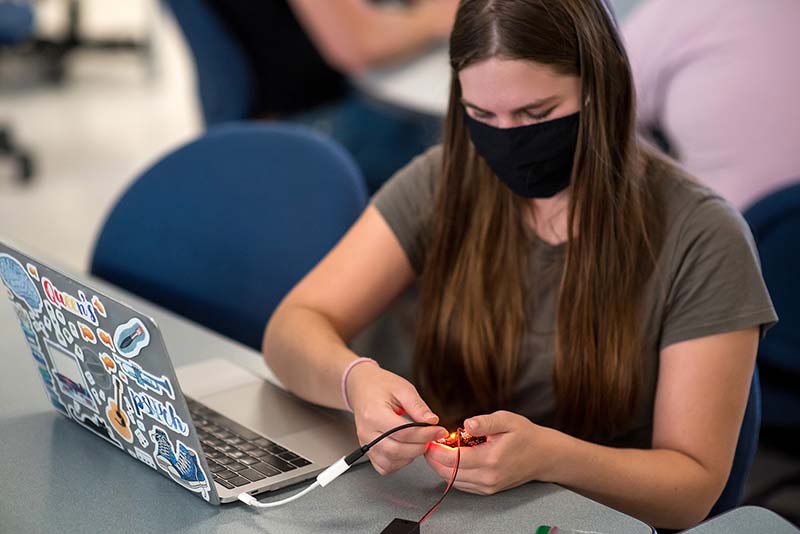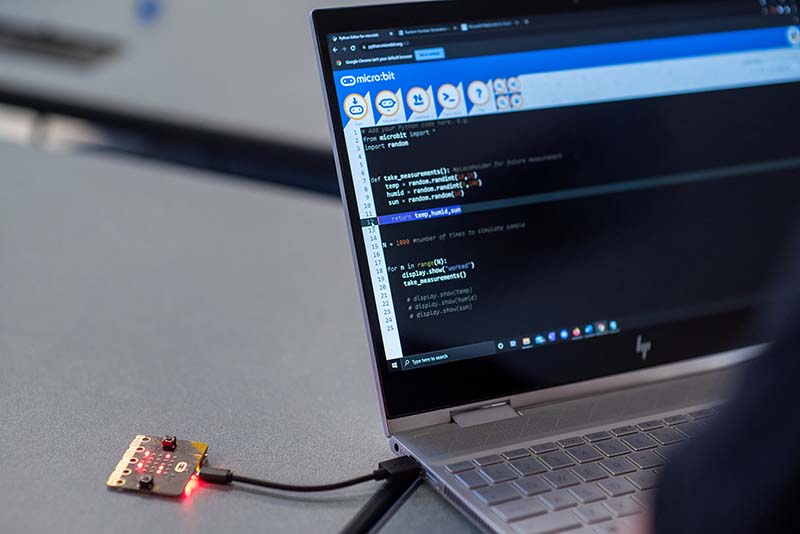The instruction of STEM concepts to young people is essential to the future of the sciences. Utilizing methods and tools developed for outreach programs designed for youth engagement, Queen’s faculties of engineering and education are teaming up to invigorate the STEM pedagogy for the next generation of teachers.
The idea of “teaching the teachers” to further develop STEM literacy with children—especially girls and diverse populations, who are underrepresented in this space—is in alignment with one of Connections’ core objectives. “If we can teach the teacher, that STEM knowledge potentially has the ability to go much further and have a greater impact,” says Scott Compeau, Manager of Connections Engineering Outreach in the Faculty of Engineering and Applied Science.
Following the success of last year’s virtual program, Connections will renew its collaboration with the Faculty of Education for the 2021-2022 academic year, this time with in-person workshops. Actua, a national charity that works to promote early engagement in STEM learning, will again provide funding to support the initiative.

The chosen mode of helping build STEM literacy awareness and capacity to the education students is through an educational technology called the Micro:bit, a coding platform accessible for grade school students. Compeau speaks highly of the technology, citing its low price-point and the flexibility of its design.
“Using this Micro:bit technology as a tool to support students in developing digital literacy skills doesn’t have to be an isolated occurrence that teachers use once or twice over the course of the year,” says Compeau. “It can be a great tool to support teaching and learning and is something that should be more integrated into the classroom. We’re not trying to teach them the technology, we’re trying to show them how the educational technology can be used to support their own teaching and learning practice, with emphasis being placed on the engineering component of STEM.”
Many engineering faculties across Canada offer youth outreach programs, but few are helmed by individuals with the level of education and experience as Scott Compeau. With undergraduate degrees in both Chemical Engineering and Education, a Master of Engineering Education, and now a PhD in Education—all from Queen’s—Scott is uniquely positioned to push the boundaries of what an engineering outreach program can do.
“My role and my work are really just trying to start the conversation about engineering education much earlier than at the post-secondary level,” he says. “I’ve seen that there is a big need for the awareness piece of research and evidence around STEM outreach at the kindergarten to grade 12 level, and the influence it might have towards the engineering education pipeline. Part of my future plans is to continue exploring the relationship between STEM outreach and the impact on K-12 students, with emphasis on how outreach organizations support increasing equity, diversity, inclusivity, and Indigeneity in STEM fields.”
A large part of that work is continuing to solidify the partnership with the Faculty of Education and the pre-service teachers. It’s this effort that makes the Connections Outreach team so appealing to funding organizations like Actua and the federal government.
The first workshops are slated to begin in September, and will carry forward into the Faculty of Education teacher candidates’ curriculum with subject-specific courses in using the Micro:bit.

